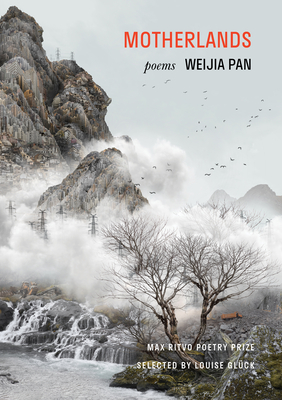
Motherlands opens with a child drawn early to poetry. "In summer I write. Two lines at a time, two vying souls / running up the wall." The collection follows this speaker-poet through a childhood in post-Maoist China and an eventual move to the United States, laying bare cultural and linguistic tensions in both historical and modern settings. He cites Chinese laborers toiling in American factories--an echo of the brutalities endured by those who constructed the Transatlantic Railroad--and speaks to anxieties around belonging, assimilation, and identity. "If I forget one character a day," he writes. "I will have forgotten Chinese / by the end of 2042."
In these attentive, imaginative poems, Weijia Pan questions the artist's duty--his duty--as a chronicler of truth, especially through issues of displacement and global injustice. What can the poet do but observe? And yet, in unpacking ancestral traumas connected to Maoist China and modern-day bigotry exacerbated by the COVID-19 pandemic, he still finds himself turning to art as a way to understand both the self and the world at large. Through elegant juxtapositions, Pan crafts an emotional world that is at once regional and universal--Li Bai and Du Fu sit alongside Glenn Gould and Sviatoslav Richter, pepper used to bless new roads is repurposed in the mace used against protesters, two languages compete on a single tongue. Lyrical and visionary, this collection embodies poetry's capacity to ground us, teach us, and change us.member goods
listens & views

DELICATESSEN TRADITION & MODERNE SAMPLER ...
by DELICATESSEN TRADITION AND MODERNE SAMPLER / VARIOUS
COMPACT DISCout of stock
$21.99






